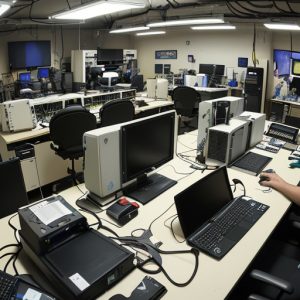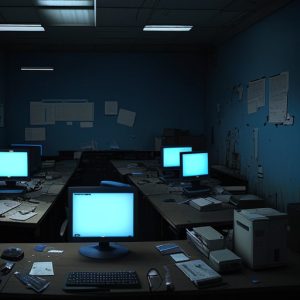Mengatasi Masalah Kinerja Komputer yang Lambat Secara Permanen
Mengatasi masalah kinerja komputer yang lambat bisa menjadi tantangan bagi banyak orang. Bayangkan kamu sedang mencoba menyelesaikan tugas penting, namun...
 Mengatasi Masalah Kinerja Komputer yang Lambat Secara Permanen
Mengatasi Masalah Kinerja Komputer yang Lambat Secara Permanen
 Cara Mengatasi Kesalahan Driver yang Membuat Komputer Mati Tiba-Tiba
Cara Mengatasi Kesalahan Driver yang Membuat Komputer Mati Tiba-Tiba
 Cara Mengatasi Error Boot Windows dengan Mudah di Laptop
Cara Mengatasi Error Boot Windows dengan Mudah di Laptop
 Perawatan Komputer untuk Meningkatkan Kinerja dan Pertahanan
Perawatan Komputer untuk Meningkatkan Kinerja dan Pertahanan
 Cara Membuat Perangkat Lunak Troubleshooting Komputer dengan Mudah
Cara Membuat Perangkat Lunak Troubleshooting Komputer dengan Mudah
Mengatasi masalah kinerja komputer yang lambat bisa menjadi tantangan bagi banyak orang. Bayangkan kamu sedang mencoba menyelesaikan tugas penting, namun...
Bayangkan Anda sedang sedang berjalan di jalan raya dengan mobil berkecepatan tinggi. Tiba-tiba, mobil itu kandas dan mematikan mesinnya. Apakah...
Bahagia kembali kepada pengguna laptop Windows yang sering mengalami error boot! Apakah kamu sudah pernah merasakan perangkapan error boot? Kini,...
Perawatan komputer adalah langkah penting untuk menjaga kinerja yang optimal dan mencegah kerusakan pada perangkat keras. Seperti bagaimana kita membersihkan...
Setiap kali kita menggunakan komputer, kita sering kali menghadapi masalah yang tidak kita ketahui cara memecahkan. Ini bisa membuat kita...
Apakah Anda sering merasakan frustrasi saat koneksi internet Anda tidak stabil? Mungkin karena perangkat Anda sudah lama, atau karena penggunaan...
Apakah Anda merasa frustrasi ketika komputer atau laptop Anda berjalan lambat? Mungkin prosesor Anda memerlukan perawatan yang tepat untuk kembali...
Bayangkan Anda memiliki mobil yang sudah lama dan tidak terawat, maka bagaimana dengan komputermu? Jika kamu tidak memperbaiki komputermu secara...
Perbaiki Error System dengan Metode Troubleshooting yang Efektif Mengatasi kesalahan sistem dengan efektif Berbagai kesalahan sistem dapat menyebabkan keterlambatan, kehilangan...
Apakah kamu pernah merasakan kesulitan saat mencoba menghubungkan perangkat ke Wi-Fi di rumah? Mungkin kamu merasa seperti berada di "tempat...









